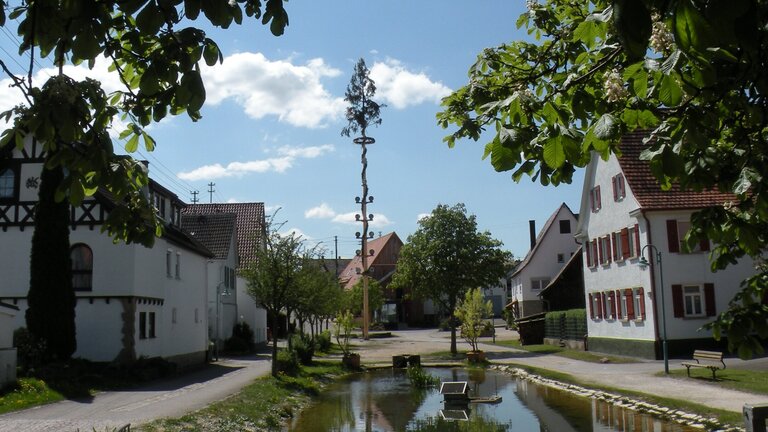A heating network for 1,500 inhabitants. To make its heating supply sustainable and speed up the energy transition, the German city of Rottenburg am Neckar is looking into a climate-friendly local heating network for the district of Oberndorf. The energy experts of Drees & Sommer, a planning and consulting company specializing in the real estate and construction sector, are currently checking if and whether this is possible. 75 percent of the feasibility study costs are financed by the state-owned KfW development bank. First results should be available in fall.
Jörg Weber, Rottenburg’s Climate Action Officer, commented: ‘We are still very dependent on oil and natural gas for heating in the Rottenburg area. We aim to change that, and are now investigating more closely the possibilities for installing a carbon-neutral heating supply in our districts, beginning with Oberndorf. We are focusing on local heating networks.’ This move by the city council will be welcomed by the Oberndorf Local Heating action group, which has been actively campaigning for around two years for the development of a local heating network in the rural district of Oberndorf.
The technical expertise and the groundwork are to be provided by a feasibility study being developed by the Stuttgart-based planning and consulting company Drees & Sommer as part of an integrated district energy plan. ‘Local heating networks are not only environmentally-friendly, but are also often worthwhile commercially. They eliminate the costs of buying and maintaining heating systems in individual buildings, and the investment in the centralized heating system is split between all the households connected. Joint use of the plants also means they are better used and the potential is fully exploited,’ explains energy manager Anika Zwiener, who heads the project at Drees & Sommer.
Gathering of Data on Existing Infrastructure
Drees & Sommer’s energy experts are currently conducting an infrastructure review, systematically covering the entire rural area – including the age and condition of the buildings, how densely developed the area is, and possible sources of heat. ‘A lot of data is needed to plan a local heating network – even in a rural area. The many old and even historic buildings and infrastructure make this a particular challenge. For instance, geothermal energy is not an option in Oberndorf owing to the gypsiferous subsoil. This means the technical and commercial possibility of alternative heat sources has to be investigated. The more data are available the better we understand what measures are required,’ says Anika Zwiener. First results are expected to be presented by the expert team in fall 2023. On the basis of the preliminary study, Rottenburg’s city council can decide whether and how to implement the local heating network, and begin with the actual planning. The overall plan also considers what building renovations will be necessary, as well as the issue of mobility and climate change adaptation measures.
Growing Interest in Local Heating Systems
Increased energy prices, along with the 75 percent government grant provided through the German development bank KfW, have led to growing interest throughout Germany in local and district heating networks. ‘As well as providing financial aid, the grant gives small towns and municipalities such as Oberndorf the opportunity to carry out thorough and extensive surveys of strategically challenging neighborhoods and introduce appropriate measures, comments,’ comments Drees & Sommer’s energy manager. In the federal state of Baden-Wuerttemberg alone, she and her colleagues are currently overseeing several projects of this kind, for instance in the Plieningen district of Stuttgart. The expert team has also analyzed feasibility of local heating networks in Stuttgart’s districts Möhringen, Stuttgart-Rot and Obertürkheim and prepared energy plans for neighborhoods. For a number of years, the strategic framework in Baden-Wuerttemberg has been determined by compulsory municipal heating planning. The upcoming amendment of the German Buildings Energy Act (Gebäudeenergiegesetz, GEG) will make municipal heating planning obligatory throughout Germany.
